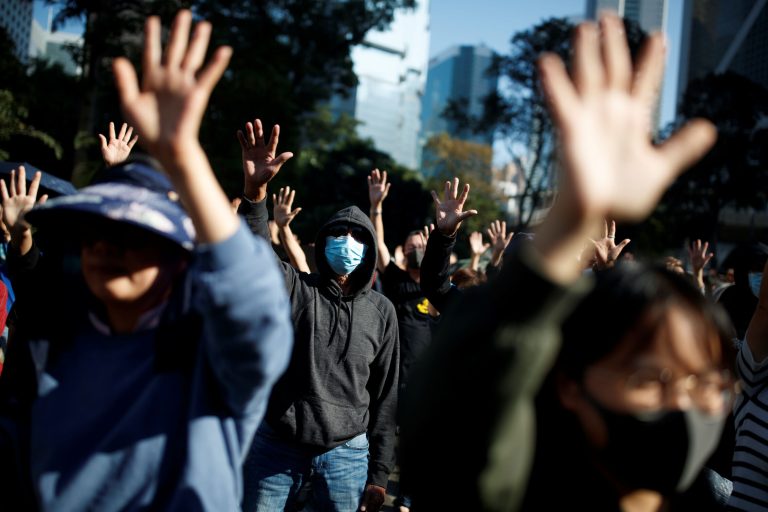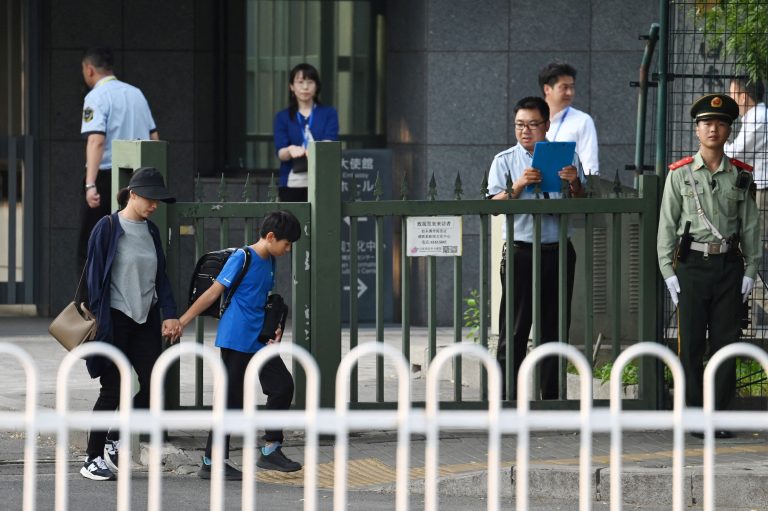On May 8 (Wednesday), Hong Kong’s Court of Appeal banned the song “Glory to Hong Kong” — popular in the city as a protest anthem — following a request filed by the city’s government. The ruling overturned a lower court judgment that had rejected the ban in light of the “chilling effects” it would have on free speech.
The ruling comes amid a continuous erosion of Hong Kong’s rule of law and civil rights as the Chinese Communist Party (CCP) tightens its grip over the nominally autonomous port city.
In recent years Beijing has jailed scores of opposition democrats and shut down independent media outlets in Hong Kong, following the imposition of a so-called “National Security Law” in June 2020.
The case has significant implications for internet freedom as well as the operations of internet platform operators (IPOs) and technology firms present in Hong Kong, such as Google.
Court of Appeal judges Jeremy Poon, Carlye Chu, and Anthea Pang wrote that the song had been composed with the intent of being used as a weapon against national security.
Success
You are now signed up for our newsletter
Success
Check your email to complete sign up
The judges wrote: “In the hands of those with the intention to incite secession and sedition, the song can be deployed to arouse anti-establishment sentiments”.
“An injunction is necessary to persuade the IPOs to remove the problematic videos in connection with the song” from their platforms, they added.
“Although the IPOs have not taken part in these proceedings, they have indicated that they are ready to accede to the Government’s request if there is a court order.”
Lin Jian, spokesperson of the Chinese Foreign Ministry, claimed during a regular press briefing that “preventing anyone from using or disseminating the relevant song… is a legitimate and necessary measure by (Hong Kong) to fulfill its responsibility of safeguarding national security”.
Hong Kong’s Secretary for Justice said to the media that the government “will communicate with relevant internet service providers, request or demand them to remove relevant content in accordance with the injunction order.”
Hong Kong was declared an English colony in 1843 and enjoyed freedom and economic development under British rule (it was also known as one of the “Four Asian Tigers”). Hong Kong was made a British colony in the 1800s, with the UK having seized it from then-imperial China. In 1997 it returned to Chinese sovereignty, with the guarantee its freedoms would be preserved under a “one country, two systems” formula, a promise that Beijing has since broken.
Hongkongers staged major protests against the deterioration of their city’s rights on several occasions prior to the promulgation of the National Security Law, with the biggest being the 2019-2020 movement calling for democratic reforms and the rollback of CCP influence in the city. Those protests saw millions of people take to the streets.
Hong Kong does not have its own anthem. “Glory to Hong Kong” was written in 2019 amidst that year’s pro-democracy protests, and was considered an unofficial anthem for the city.
The court ruling targets those who broadcast or distribute the song with the intention of inciting secession. Those who advocate forHong Kong’s independence or criticize the Communist Chinese national anthem are also targeted, with exceptions only granted to lawful academic and journalistic activities, the judges added.
High Court Judge Anthony Chan refused to ban the protest anthem last July, saying it could undermine freedom of expression and cause serious “chilling effects” on freedom of expression in Hong Kong. The Hong Kong government, which is largely influenced by Beijing, then sought an appeal to the decision, after “Glory to Hong Kong” was mistakenly played at several international events as the official anthem.
Google said in an emailed response to Reuters that “it is reviewing the court’s judgment.” It had earlier said it wouldn’t change its search results to display the national anthem of the People’s Republic of China (PRC) instead of the now-banned “Glory to Hong Kong.”
DGX Music, the group that made the song, did not immediately respond to a Reuters request to comment.
China imposed the national security law in 2020 and banned the song in Hong Kong schools. In March, authorities enacted the infamous “Article 23” — another set of national security laws that further undermines rights and free speech in the city.
Reuters contributed to the report.







